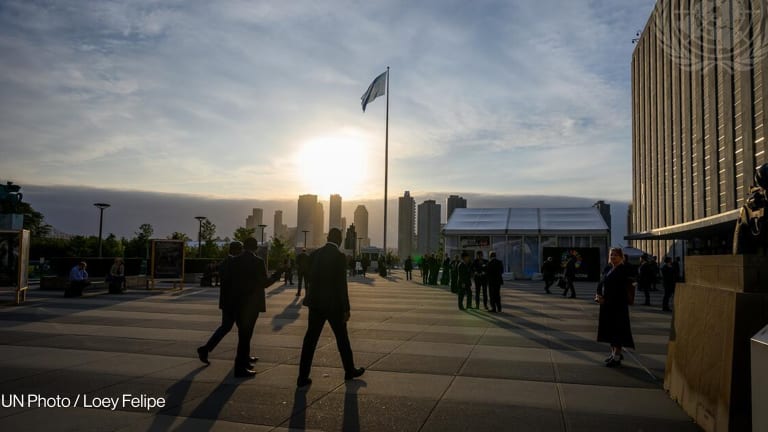
I’ve been doing humanitarian work for over ten years and like this job because it saves lives. What you do for a child within the first few weeks of an emergency or disaster makes a difference to the rest of their life.
For example, if we move in quickly and set up a school for a child to continue his or her education instead of waiting for the long-term government project, that child will catch up with other students and there will be less impact on his or her education in the long run. For children who have witnessed dead bodies and shootings, or have seen their mothers raped during the conflicts, the trauma stays with them psychologically — they can grow up thinking that killing is normal and that seeing people dying is normal. Our psycho-social work is so important to help children grow up naturally as children.
I’ve just been deployed for three months to Myanmar, where Plan International has opened a new office. I am sent wherever the emergency team needs capacity to design programmes in countries that are struggling.
We have no sponsorship at all yet in Myanmar, where there has been both political and community conflict for so many years. We’re looking at about 140,000 people in the refugee camps in Rakhine state alone, and another 100,000 internally displaced people, among them about 50,000 children.
These children can’t go to school because they don’t have access to quality education. Then you have land mines, lack of access to quality health services and people living between government-held and rebel-controlled areas where they can’t cross over. It’s a desperate situation.
Earlier this year I spent five months in Mali. Again, the country was struggling to respond to the political emergency and I had to scale up our programs to support around 40,000 distressed children. The problem was that almost the whole region of Timbuktu was occupied by Islamist insurgents. During the period of sharia law that was imposed, girls were not allowed to go to school; they were forced into marriage and there were many cases of rape and premature pregnancy. The whole system collapsed because the region was occupied by rebels, nobody could go to school for a whole year, there were no health services, no food support and almost three quarters of the population was displaced.
We went in as one of the first agencies at that time with a program based around child protection, education and WASH in schools. We constructed temporary schools distributed school kits and teaching materials, and trained teachers. We also promoted hygiene, providing drinking water for children and running child-friendly spaces.
When you move to an area where children are really traumatized, they have nothing to do, no playing materials and nowhere to go. But if you set up a child-friendly space, somewhere for them to play, it makes a difference in their lives psychologically. Those children who have dropped out of school have a smile on their faces when they start school again. You can see the impact on the children’s lives straight away, it doesn’t take years. Some children attempt to go to school without any school supplies, no pencils, no books, no bags. So we distribute supplies and the children can go to school again and be happy.
I guess the most important thing about this type of humanitarian work is that you do your job, and you make a difference to somebody’s life. I help someone every day, and I am proud of that.
Join the Devex communityand gain access to more in-depth analysis, breaking news and business advice — and a host of other services — on international development, humanitarian aid and global health.








